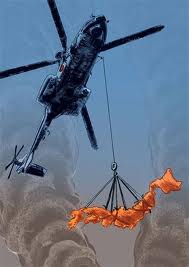Once the magnitude of the March 11 disaster became clear, the online world began asking, “How can we help?”
And for that, social media offered the ideal platform for good ideas to spread quickly, supplementing efforts launched by giants like Google and Facebook.
A British teacher living in Abiko city, just east of Tokyo, is leading a volunteer team of bloggers, writers and editors producing “Quakebook,” a collection of reflections, essays and images of the earthquake that will be sold in the coming days as a digital publication. Proceeds from the project will go to the Japanese Red Cross, said the 40-year-old, who goes by the pseudonym “Our Man in Abiko.”
The entirely Twitter-sourced project started with a single tweet exactly a week after the earthquake. Within an hour, he had received two submissions, which soon grew to the 87 that now comprise the book.
Quakebook involves some 200 people in Japan and abroad, and the group is in negotiations to sell the download on Amazon.com. It didn’t take long for others to notice. Twitter itself has sent out a tweet about Quakebook, as has Yoko Ono. Best-selling novelist Barry Eisler wrote the foreword for the book. Organizers, including Our Man in Abiko, will hold a press conference at the Foreign Correspondents’ Club of Japan in Tokyo on Friday.
“I just thought I want to do something,” he said in a telephone interview. “I felt completely helpless.”
Another project, “World’s 1000 Messages for Japan,” is an effort to convey thoughts from around the globe. Writers can leave short notes on Facebook or through e-mail, which a group of volunteers then translate into Japanese. The translations are then posted on Twitter as well as the group’s website.
 Filed Under :
Filed Under :



0 komentar:
Post a Comment